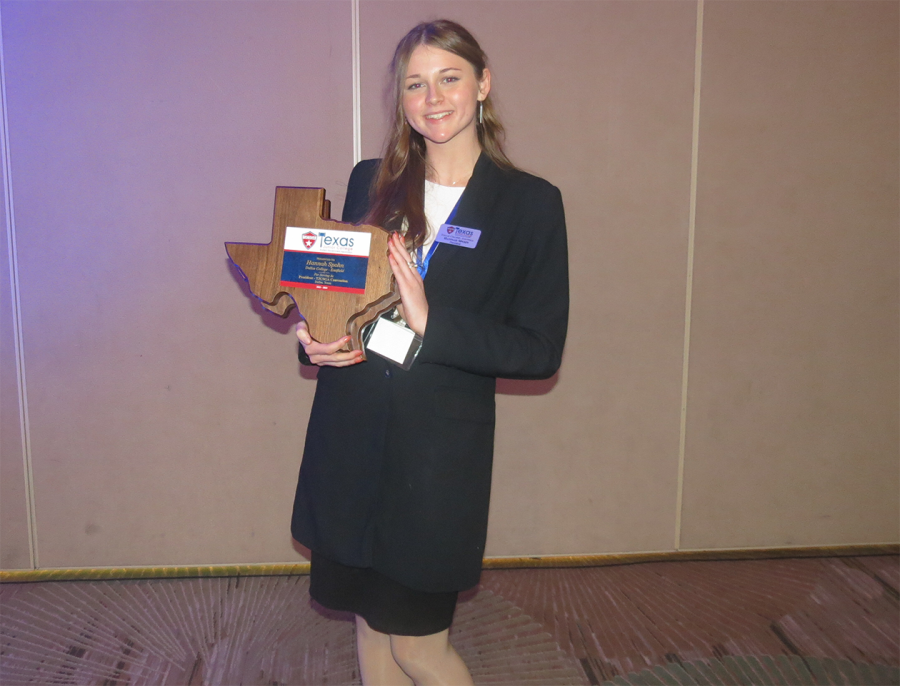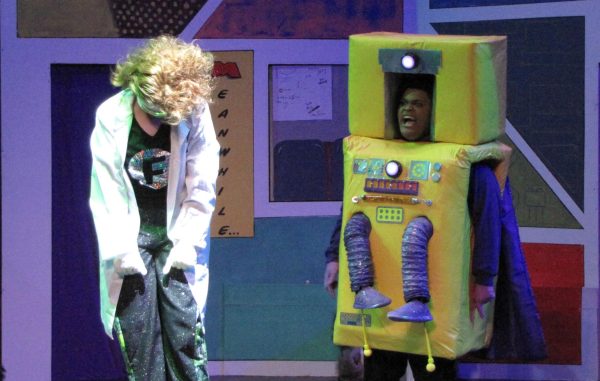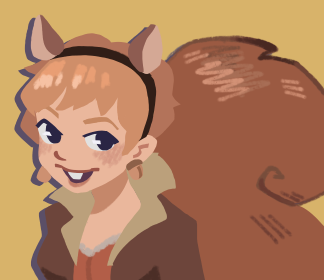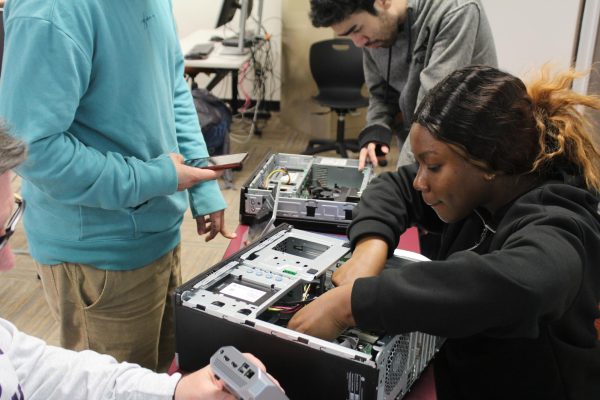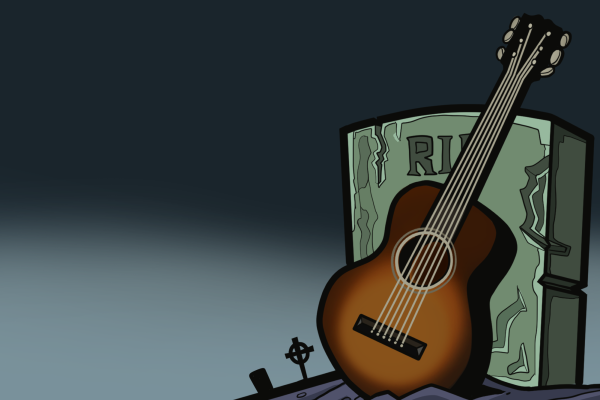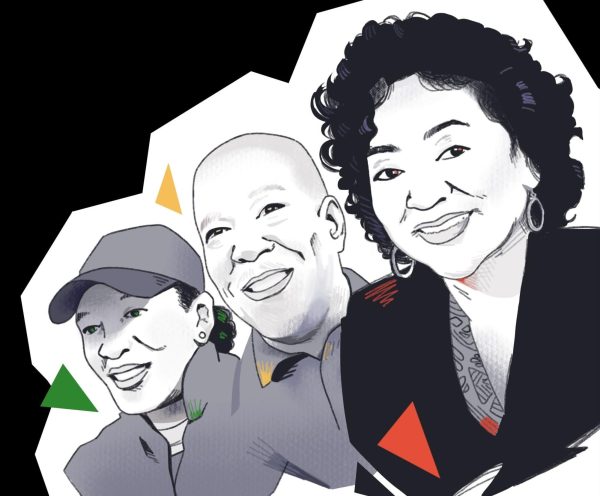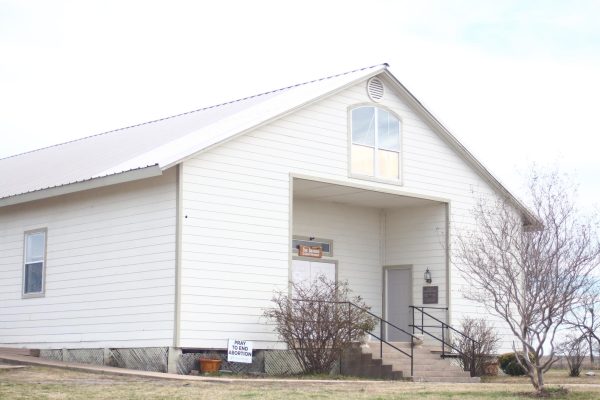Q&A: Passion launches Spohn to state SGA presidency”
Hannah Spohn, president of the Texas Junior College Student Government Association, says leadership is projecting your voice to help others.
April 25, 2023
Hannah Spohn’s passion for student government shines in her role as president of the Texas Junior College Student Government Association. Appointed at age 19, she became the youngest member to take the organization’s reins.
Spohn spoke with Et Cetera contributor Raine Caldwell about the role of student government and her future aspirations.
Q: What is TJCSGA?
A: TJSGA is the Texas Junior College Student Government Association, and it oversees every community college, technical college and junior college student government in Texas. We helped oversee, for example, the Community College Day [in Austin] back in January.
Q: What is your role in TJCSGA?
A: Well, as the president, I get a unique position of pretty much overseeing what everybody else does and getting to hear firsthand their input into what they want for a better future.
Q: What kind of programs does TJCSGA have for the betterment of junior colleges across the state?
A: You can join a committee and help with community service events across Texas. We have regional positions where you can make T-shirts and let your creativity shine through. Then we have positions where you can help lobby laws to go to Congress. And on our community college days, we have different advocacy events open for students.
Q: What would you like people to know about TJCSGA?
A: That it’s a lot more than planning parties and planning social events. Definitely a really big perk of being in SGA is you get to plan conventions, conferences and local events. You also have the impact and the resources to plan food drives and community service events, like giving supplies to a women’s shelter. … You have access to so many resources to help people in such a diverse group, because at community college, we don’t just have 18-year-olds fresh from high school. We have people coming back to get degrees. I feel that kind of has an extra importance when you look at how many people and how many demographics we’re impacting. We have a very broad impact.
Q: What makes student government important?
A: I’ve made so many friends in student government, and there’s so many people that I could not live my life without, from advisers to other students to people who have graduated and gone on to different universities. To me, the people make student governments so much fun. They have brought people together through a passion for leadership and helping each other. … Without the students, it’s nothing.
Q: How did you get involved in student government?
A: Back in 2020, in the height of the pandemic, I was [attending class virtually]. Everyone was virtual. I felt very isolated from having a traditional high school or college experience, so I decided to join the club fair at [Eastfield], which was on Zoom. I got there and they were saying, “Every leadership position for SGA is open. Do you want to run?” And I was like, “OK, sure.” So I ran for local secretary. I won. I was really glad about that, but then in my first meeting they said, “Hey, they’re looking for a regional secretary. Would you be interested?” So I was like, “OK, sure, I’d love to as well.” And within a couple of weeks, I was planning the first conference for a whole region of students from every Dallas College campus, from Tarrant County College, Weatherford and a whole bunch of schools in North Texas. And it was all on Zoom, but it gave me this first look into how student government functions even when we’re apart by a global pandemic.
When things started to get back in person in 2021 and 2022, I really felt my leadership skills flourish because I had conquered probably one of the hardest aspects of leadership, which is leadership when nobody’s around.
Q: How important is student involvement to you?
A: Student involvement is crucial. I found that from even being virtual. Having students who are passionate about making an impact and passionate about growing their SGA, that’s always been the most important thing to me.
Q: What do you want to tell people who are looking to join student government?
A: Make sure that you can commit yourself to it, because a lot of people join, thinking, “Oh, this is good for a resume,” or, “This will be cool for college applications.” But then when they realize that it takes a lot of hard work and countless hours of just giving your time away, they may be deterred from doing that. So before anyone joins SGA, I would say make sure that you have not only the passion but the time to commit yourself to other things beyond mental health and keeping your grades up. It’s super important to have personal time.
Q: What does leadership mean to you?
A: It isn’t being super strict. It isn’t super powerful. To me, leadership is knowing what people around you want, being a voice for them. I often find in student government, I’m representing people who don’t have a voice and who feel like they can’t make an impact. So for me, leadership is being able to project your voice to help others.
Q: Would you say that student government is inherently selfless?
A: Oh, definitely. At Dallas College we’re not getting paid to do any of this, so it really comes from wanting to make a better future for other students. My little brothers, for example, will be going to community college doing dual credit in the next few years. I want to leave not just my student government, but the whole community college better for the next generation, which in my case, is my brothers’.
Q: Do you have a certain role model in mind or anyone that you would like to work with?
A: One politician that I really look up to, because of how he approaches his campaigns and his followers, would be Beto O’Rourke. I really like his platform of trying to reach and connect with everybody. I don’t know if I have a specific role model per se, but there’s definitely different politicians whose campaigns and leadership styles and the way in which they carry themselves, their diplomacy, I take inspiration from them. And Beto O’Rourke is definitely a very big inspiration for me.
Q: Where do you see yourself in five years?
A: I think in five years I will be at law school. But one of the goals that I have pretty short term would be working under a politician, whether it’s an internship or a paid job, where I get to experience politics from above a community college level and get real experience into everyday life with one of them.
Q: What do you want the world to know about Hanna Spohn?
A: This isn’t just about me, per se, but that every community college leader is not just the leader. We are all people with our own time commitments and our own personal goals for the future. I hope that everybody treats each student government officer, executive board member, senator and, in general, member with respect. And also honoring the time commitments that they [make] and just taking a moment to appreciate everything that we’ve done throughout the year. We’re all more than just student government officials.

